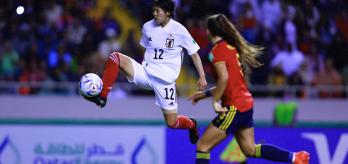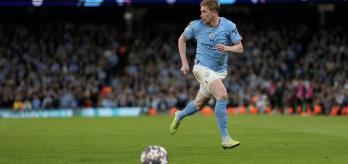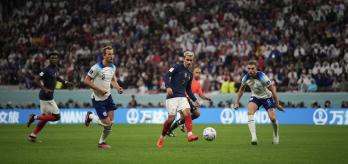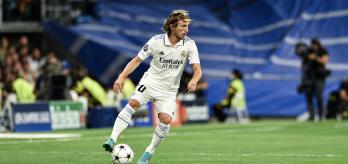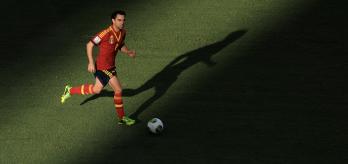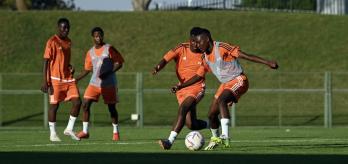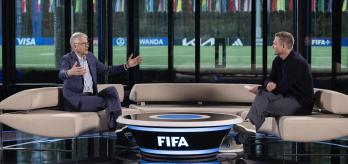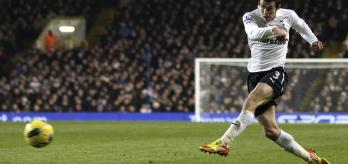The concept of "game intelligence" is highly complex, but what does it mean in a football context? How do players develop game intelligence? In this presentation, Professor Mark Williams of the Institute of Human and Machine Cognition answers these questions on the basis of the latest scientific research, and considers how practitioners can prepare their players to read the game more effectively and make the most appropriate decisions during matches. The presentation is followed by a Q&A session hosted by FIFA's Dr Paul Bradley.
Define game intelligence and examine whether it is coachable. If it is, consider what might be the best method for doing so.
Game intelligence could be linked to enhanced anticipation skills and the ability to recognise patterns in play, among other factors. It can be coached to an extent, but there is an ongoing debate about the best way of doing so. More research is needed to discover how the various pieces of this puzzle fit together.
Be open to using a range of different techniques and new technologies to foster game intelligence, and be wary of an overly structured approach to training.
Watch presentation
Read summary
Part 1: What game intelligence is and isn't: vision v. anticipation
In the first part of his presentation, Professor Williams tries to define what 'game intelligence' actually is – which is more difficult than it might seem. As he explains, and contrary to the terminology used by football commentators, the science suggests that game intelligence is not strongly associated with 'vision' per se. Rather, it seems more likely that game intelligence is about the ability to process information, anticipate what is about to happen, and react accordingly.
He then goes on to discuss exactly what sets 'expert' players apart from others in this regard, as shown in scientific experiments. Studies have demonstrated that top players develop a range of specific anticipation skills, such as the ability to read the posture and body language of opposition players to work out what they are likely to do – goalkeepers tend to be especially good at this. Expert players also seem to be better than non-expert players at recognising patterns from experience and using their visual senses to gather specific information they can exploit during matches.
Part 2: Practice breeds consistency: the importance of experience
In this section, Professor Williams demonstrates how expert footballers use their experience and their knowledge of how their opposition like to play to predict how the game will unfold. He also talks us through a number of scientific studies that indicate how that experience helps expert players pick out the most valuable information available to them during matches, as well as how they process that information differently from non-experts.
If we accept that the ability to read the game is a product of development and experience, it is logical to ask when these skills start to manifest themselves in young players. Professor Williams reveals that even very young elite players perform better than their non-elite peers in these areas, but there are various theories as to why. Genetics could be a factor, but there also appears to be a correlation between the amount of practice a player engages in and their ability to read the game. Although one might assume that practice makes perfect, the reality is not that simple, and it is probably more accurate to say that effective practice makes players more consistent.
Part 3: How can we develop game intelligence?
To conclude his presentation, Professor Williams considers how coaches can teach or develop game intelligence in practice. Research suggests a number of factors need to be taken into account when attempting to improve players' game intelligence. For example, there is an ongoing dialogue within the scientific and coaching communities as to how much street football young players should be encouraged to play, and whether informal kickabouts with friends and siblings might promote creative thinking more effectively than structured training. Similarly, it is difficult to strike a balance between "hands-off" training that encourages players to find their own solutions to problems, and "hands-on" instruction, which tends to yield better short-term results at the expense of creativity.
Finally, Professor Williams touches upon how other disciplines and new technologies could be used to help players develop game intelligence. Might applying psychology and the science of metacognition, which fosters self-awareness and reflection, help players to improve their performance? How much can we teach players using video analysis? And how useful might simulation and virtual reality (VR) be in this regard? The trends emerging from the latest research suggest that If we are aiming to produce a 22-year-old with the anticipation skills of a 28-year-old, science may be able to help.
Q&A
00:50
The physical, tactical and technical demands on footballers are position-specific. Can you provide more detail on position-specific trends?
06:01
Is decision-making driven by tactical scenarios faced by players, or is it more autonomous and/or subconscious?
08:54
Has any research been produced on creativity in football?
11:50
To what extent can you train game intelligence?
16:20
If game intelligence is trainable, how do we adapt practice conditions to promote decision-making skills in players?
19:22
Can you give examples of drills coaches can use to develop and maintain game intelligence?
25:58
It is easy to build certain physical characteristics in players by changing their training. Does the same principle apply to cognitive training?
30:10
If you were going to give coaches watching this some simple advice on developing game intelligence, what would it be?






